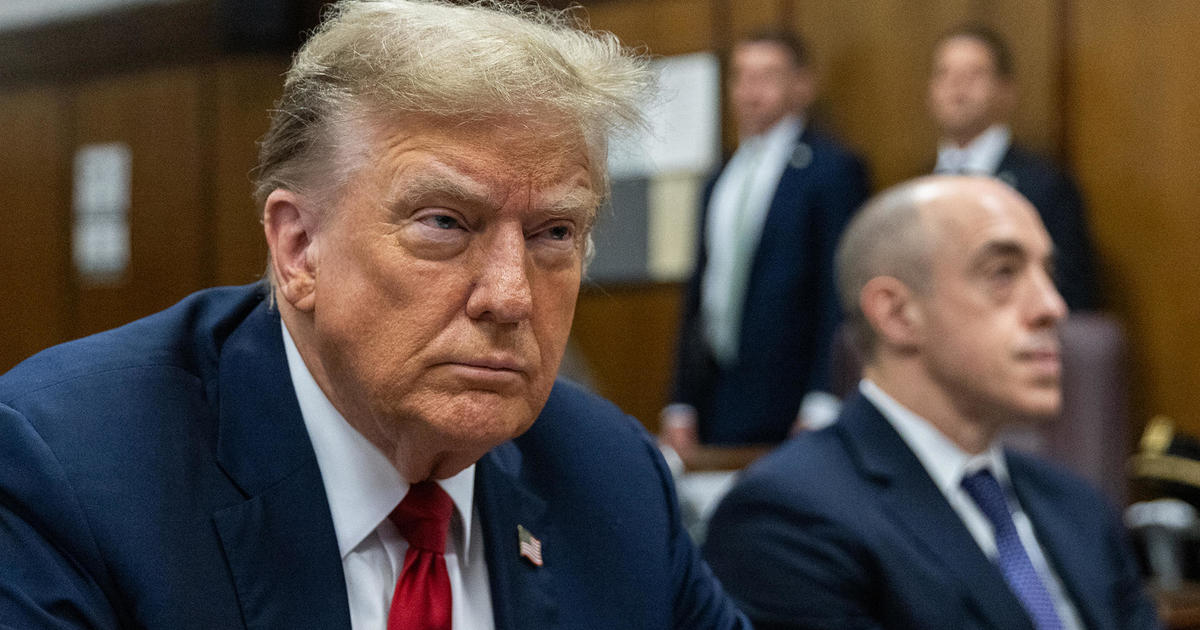Why U.S. businesses said "stay in the Paris accord"
Corporate America overwhelmingly, if fruitlessly, urged President Donald Trump to keep the U.S. in the Paris climate agreement. Why? Support for fighting climate change is in their own self-interest
Likely reasons for business' backing of the accord range from its public relations impact to the 195-nation pact's value in aiding particular business strategies, such as the energy supermajors' natural gas operations. "If you were a large corporation, the herd instinct told you how to chime in" on backing the international accord, said Bill McKibben, a Middlebury College professor and environmental advocate.
In announcing that the U.S. was pulling out of the Paris treaty on Thursday, Mr. Trump said it "hamstrings the United States" and would cost jobs in a host of industries such as coal and steel. The market reaction to Mr. Trump's speech from the White House Rose Garden was mixed.
Peabody Energy (BTU), the largest coal company, was down 0.6 percent on Thursday, and No. 2 Arch Coal (ARCH) rose almost 0.6 percent. The largest steel firm, Nucor (NUE), advanced 1.7 percent.
Agreed to in 2015, with enthusiastic support from then-President Barack Obama, the deal committed signers to voluntarily reducing their greenhouse gas emissions in a bid to fight climate change.The U.S. is the world's second-largest producer of carbon emissions, after China.
Mr. Trump's decision flew in the face of a vocal campaign by large companies to keep America in the agreement, and it sparked anger among some chief executives. "Climate change is real," Jeff Immelt, CEO of General Electric (GE), said in a tweet after the president's announcement. "Industry must now lead and not depend on government."
In the wake of Mr. Trump's speech, Elon Musk, head of electric-car maker Tesla (TSLA), resigned from the president's business advisory council. "Leaving Paris is not good for America or the world," he tweeted.Bob Iger, chief of Walt Disney (DIS), followed suit in quitting the council over the Paris move.
The hundreds of big companies that backed staying with the Paris accord run the full range of business sectors. They included retailers like Walmart (WMT), tech giants such as Apple (AAPL), automakers like General Motors (GM) and even the leading lights of the fossil fuel industry, notably Exxon Mobil (XOM).
Recently, 25 large corporations took out full-page ads in newspapers urging Mr. Trump to stick with the climate pact. "By expanding markets for innovative clean technologies, the agreement generates jobs and economic growth," it read.
And Darren Woods, CEO of Exxon, wrote a letter to the president arguing that staying in the agreement would ensure that "the United States will maintain a seat at the negotiating table." At the company's shareholder meeting Wednesday, he said, staying in was vital "to ensure a level playing field so that all energy sources and technologies are treated equitably."
"I was elected to represent the citizens of Pittsburgh, not Paris," the president said. In Mr. Trump's estimation, the Paris plan would result in 2.7 million lost American jobs lost by 2025, which environmentalists deride as wrongheaded.
The American Sustainable Business Council, a group of mainly smaller companies, argues that plenty of jobs can be created without harming the environment. "The value of Paris to businesses is the clear market signal that the future is in lower carbon, rather than a chaotic and unsustainable future of business disruptions from rising seas and changing weather patterns," the group's CEO, David Levine, said in a statement. "Even U.S. presidents cannot turn back the clock on history."
And indeed, employment in energy producers other than coal is surging. According to the U.S. Department of Energy in a January report, solar has more than twice as many U.S. jobs than coal -- 374,000 versus 160,000.
Time was, of course, that Mr. Trump's stance was a widely held belief among American business leaders. They maintained that pollution reduction equaled job reduction. Things have changed as the public came to embrace many of environmentalists' tenets and started fearing man-made climate change.
In fairness, there's no reason to question Corporate America's sincerity about fighting climate change. Company leaders want a livable world as much as anyone else. But business' advocacy for the Paris pact shows that, for a variety of reasons, support for fighting greenhouse gases now is in their own best bottom-line interest, as well. That's because:
The accord isn't very radical. It legally requires no country to actually end greenhouse gas emissions.The agreement establishes loose and voluntary criteria to follow. In late 2015, every nation announced a nonbinding plan pledging to decrease the pumping of methane and carbon dioxide into the atmosphere. The accord's lack of hard mandates makes adhering to its benchmarks less than onerous.
That's not to say the Paris deal is simply a feel-good exercise that will lead to no meaningful results. Fast-growing China, which has an enormous appetite for energy, has committed to weaning itself from rampant coal use because burning coal has led to an enormous pollution problem in Chinese cities. So Beijing plans to meet its targets under the Paris accord by ending construction of some 100 coal-fired electric power plants and shifting billions into vast wind and solar projects.
U.S. multinationals now will face a tougher time competing overseas. As the outliers in the international business community, American companies dread being at a disadvantage that may cost them sales. The 25-company ad calling on the president to stay with the climate deal contended that "U.S. companies are well positioned to lead in these [overseas] markets. Withdrawing from the agreement will limit our access to them and could expose us to retaliatory measures."
By the same token, they're leery that the U.S. government won't be able to strike favorable trade compacts that will benefit American exporters.
It's good P.R. to support the deal. About seven out of 10 registered voters, or 69 percent, say the U.S. should participate in the Paris agreement, compared with 13 percent who say that the country should not, according to a November 2016 poll by the Yale Program on Climate Change Communication. "For consumer-facing companies in particular," said environmentalist McKibben, "it's not popular to oppose the Paris agreement."
Certainly, backing the deal is good cover for the oil industry. Exxon, for instance, is fighting an investigation led by New York Attorney General Eric Schneiderman that seeks to show that it and other energy behemoths are responsible for climate change and have covered up their culpability.
In talking about the Trump White House, Larry Summers, Treasury secretary under Bill Clinton, told CNBC Thursday that he "never imagined" an administration that's "way to the right of Exxon on a fossil fuel issue."
While the National Mining Association, which lobbies for the coal industry, favored pulling out of the Paris framework, two coal companies opted for staying. Cloud Peak Energy and Peabody told the White House that remaining in the accord would foster U.S. coal sales to emerging markets that still want the fuel, news reports said.
It helps gas producers and hurts coal. Exxon, for instance, is the nation's largest natural gas producer, and gas is displacing coal as the preferred power-generating fuel. Gas is cheaper to produce and cleaner. Benjamin Zycher, a resident scholar at the American Enterprise Institute, wrote that "because the U.S. has a lot of cheap natural gas -- a substantial part of which is produced by ExxonMobil -- [the company] will have a competitive advantage within the agreement."
Polluting industries can carve out an exception for themselves. While GM and some other automakers have voiced various degrees of support for the Paris treaty, they still push back against stricter federal tailpipe emissions standards. This winter, the Alliance of Automobile Manufacturers wrote Environmental Protection Agency head Scott Pruitt to ask that he squelch Obama-issued emissions' rules. The trade group didn't respond to a request for comment about Mr. Trump's decision to exit the Paris accord.
Meanwhile, Exxon is under investor pressure to show it's aiding the anti-climate change efforts. On Wednesday, over 62 percent of shareholders backed a nonbinding resolution requiring it to disclose the risks to its business from climate change and what policies it's following to mitigate them. Last year, only 38 percent had backed a similar motion.
Under CEO Woods, Exxon now has to decide what to do, and a spokesman indicated the board will look at the issue. The company said it already has spent nearly $8 billion in emissions-reduction technology and research on shifting to lower-carbon energy products and processes.
Mr. Trump characterized his decision as helping the forgotten men and women across this country. Some say that's not true. But along the way, he has evidently forgotten the U.S. business community.



